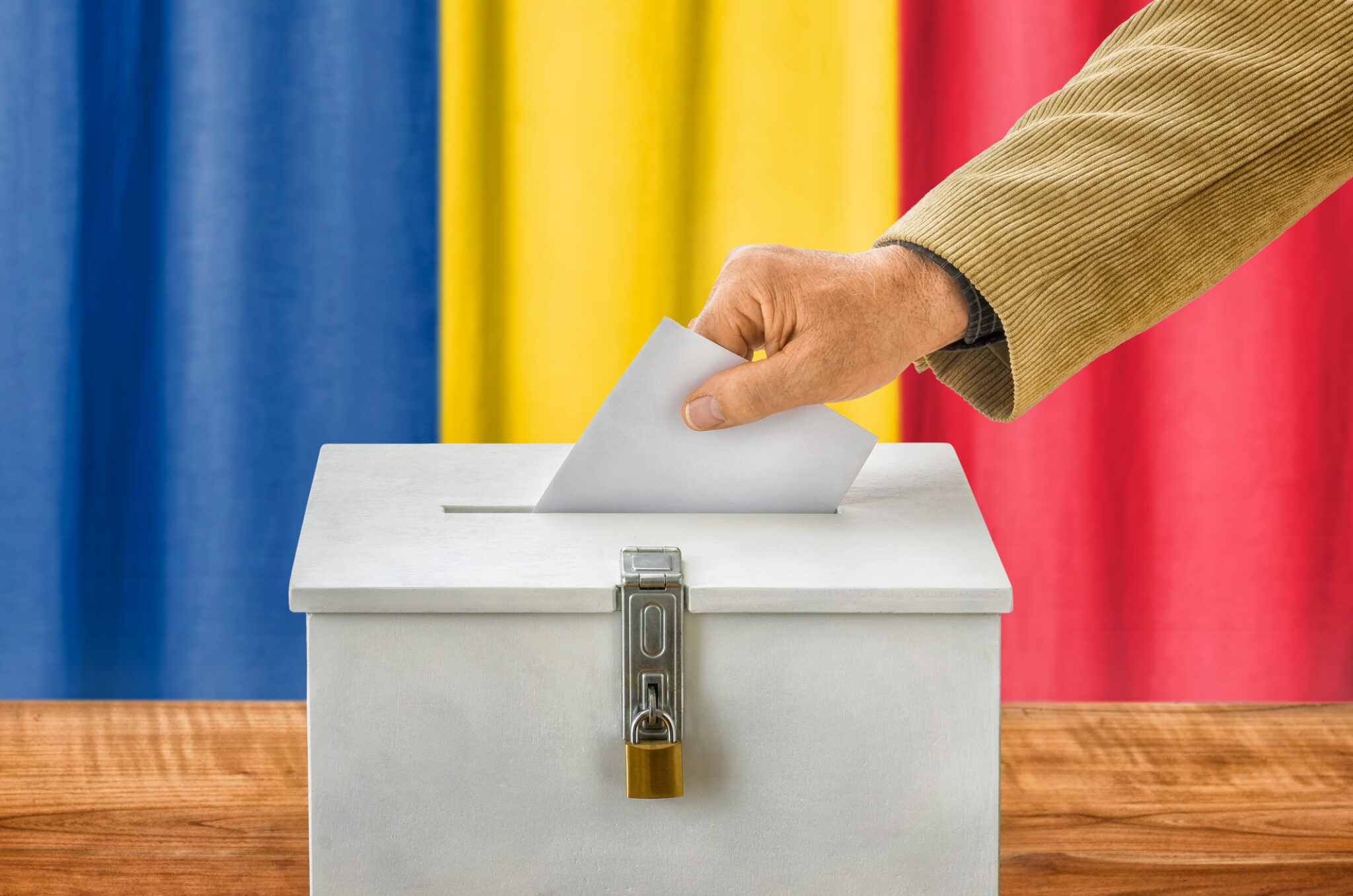14/04/2025
Romania goes to the polls (again)
At the beginning of April the electoral campaign started for the re-run of Romania’s presidential elections scheduled for 4 May (second round on 18 May). The Constitutional Court annulled last November’s elections due to alleged campaign financing irregularities and interference in the campaign by “state and non-state actors” (according to unclassified documents released by Romania’s intelligence service). Back then, Calin Georgescu, a little known economist won the first round with 23% of the votes by running a massive TikTok campaign espousing conservative and pro-Putin views. TikTok recently admitted that Georgescu and far right AUR party had benefited from the content of more than 27,000 fake accounts. It is still unclear who financed Georgescu’s campaign and the prosecutor’s office is currently running an investigation into this, Georgescu himself facing potential criminal charges.
Far right candidate favourite to win the first round
According to most polls, George Simion, the AUR candidate meant to replace Georgescu in the race, is expected to win the first round with around 30% of the votes. Until recently, AUR had been supporting Calin Georgescu, espousing most of his views. The name of Simion’s opponent in the second round is less certain as four candidates score close to 20% in most polls. Crin Antonescu is the candidate endorsed by the current governing alliance between the Social Democrats (PSD), Liberals (PNL) and the Party of the Hungarian Minority in Romania (UDMR). Antonescu is a former president of PNL with close ties to PSD who has been politically inactive for the past ten years. He is perceived to be a political moderate who has managed to gather support from all the parties in the governing coalition. Victor Ponta, a former social democrat prime minister, is running as independent, having left PSD but still enjoying support among the party base. His political views have shifted from the center left towards a Euro-sceptic nationalism, recently declaring that “Brussels had tried to change our values our traditions, our mentality”. Nicusor Dan, the current mayor of Bucharest, is also running as an independent, proposing a pro-European reformist agenda. He draws most of his support from USR voters, a party he founded ten years ago but which until this week stuck to Elana Lasconi’s candidacy for the re-run given that she managed to enter the second round in November. However, Lasconi has been polling at less than 10%, her campaign losing steam due to the competition with Dan so the party’s leadership decided to withdraw its support for Lasconi. However, she vowed to stay in the race and her candidacy could rob a few key votes that could prevent Dan from entering the second round.
Simion and Antonescu are probably the favourites to enter the second round as they are already familiar figures nationwide and are backed by strong party machines. However, Georgescu’s electoral success last autumn indicates that the importance of strong party machines has declined even among voters in rural areas, being replaced by the candidates’ ability to deliver well targeted online campaigns. Therefore, Ponta and Dan are equally well placed to face Simion in the second round and eventually win the presidency.
The current government could survive for now
Romania is a semi-presidential republic with the president’s powers mainly focused on national security and foreign policy. Therefore, no matter who wins the elections the new president will not be able to automatically replace Social Democrat PM Marcel Ciolacu. However, as the current government enjoys a slim parliamentary majority most analysts expect the outcome of the elections to influence the governing coalition. Thus, if Simion wins, it is rather likely that he would pressure PSD accept AUR in the governing coalition probably at the expense of PNL and the UDMR. Such a coalition would also include the Party of Youth (POT), a far-right party even more extreme than AUR. In terms of economic policy, both AUR and POT have espoused policies or views against multinational corporations while on foreign policy they have consistently questioned Romania’s support for Ukraine. In the scenario that Ponta becomes president, he might insist on the appointment of new foreign and defense ministers who are more closely aligned with his views in these areas, but the composition of the coalition is likely to remain the same and PM Ciolacu could retain his job. Similarly, were Antonescu to win he is not expected to interfere with the current government. On the other hand, Ciolacu might be under more pressure to resign in case Dan wins the elections as the latter would seek to forge a more reformist government with the participation of the USR under the premiership of Ilie Bolojan, a popular Liberal leader who is currently serving as Romania’s acting president. Dan and Bolojan have worked several years in local government where they implemented cost cutting and reform policies and both have recently spoken about Romania’s need to reduce spending.
Structural reform and cost cutting to follow
Romania has had significant budget deficits over the past years (8.5% of GDP at the end of 2024) coupled with high and persistent current account deficits. Therefore, the country is especially vulnerable to changes in investor sentiment. PM Ciolacu has so far postponed structural reform and cost cutting to avoid a negative impact on the coalition’s presidential candidate but we expect tax increases and cost cutting in the public sector by the end of the year no matter the colour of the next government. Also, despite the discourse of parties like AUR or POT bashing multinationals or Brussels, the country is too dependent on trade, foreign investment and inflows of EU money for the government to actually implement unorthodox economic policies inspired from Viktor Orban’s playbook.
Pompiliu Tamas
Operations Director, Romania
